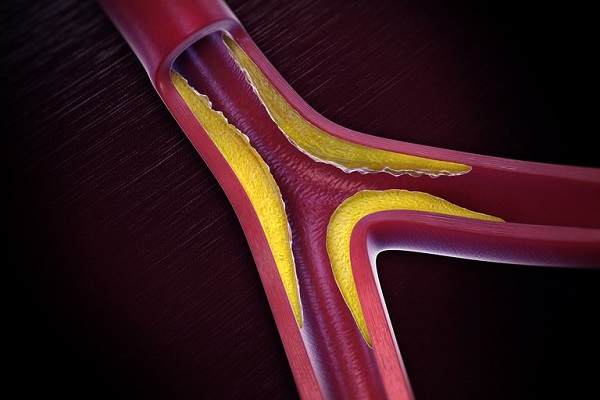Cholesterol helps your body build new cells, insulate nerves, and produce hormones. Normally, the liver makes all the cholesterol the body needs. But too much cholesterol in your body is a risk factor for heart disease.
Relating news
- Smoking and vascular disease
- Preventing varicose veins with MD. Dang Hanh Tuan
- Key differences among cardiac arrest, heart attack and stroke
- HCM city health department lists hospitals that can treat stroke
What is cholesterol?
Cholesterol is a waxy, fat-like substance that travels through the blood in carrier vehicles called lipoproteins. Cholesterol is made by the liver and serves a variety of functions. For example, it helps create the outer coating of our cells and aids the body in making vitamin D and certain hormones. But all cholesterol is not created equal. It comes in two very different types:
- Good cholesterol , or high-density lipoprotein (HDL), helps keep arteries from becoming blocked.
- Bad cholesterol, or low-density lipoprotein (LDL) can build up and cause blockages in the arteries.
Triglycers are fats produced by the liver. They can cause the same kinds of health problems as LDL.

You may be diagnosed with high blood cholesterol if you consistently have high levels of bad cholesterol in your blood in a routine test called a lipid panel. To treat high blood cholesterol, your doctor may recommend heart-healthy lifestyle changes, such as heart-healthy eating, quitting smoking, or aiming for a healthy weight. Your doctor may also prescribe medicines, such as statins, to lower and control your high blood cholesterol. Untreated high blood cholesterol can lead to the buildup of plaque in the blood vessels, called atherosclerosis. Plaque buildup increases your risk for heart attack, stroke, and peripheral artery disease.
Over time, a buildup of extra cholesterol or plaque can narrow the insides of blood vessels. Eventually, the plaque causes hardening of the arteries, also called atherosclerosis. This condition can lead to vascular disease, strokes, heart attacks, aneurysm and other life-threatening problems.
Pay attention to the following numbers for good vascular health:
- Total cholesterol should be less than 200.
- Good cholesterol (HDL) should be more than 60.
- Bad cholesterol (LDL) should be less than 130.
- Triglycerides should be less than 150.
Why take statins for Cholesterol control?
All types of atherosclerosis are improved when patients take statins. Side effects are relatively rare, and if a patient does not tolerate one statin, there are many different ones that can be tried.
What are statins?
Statins act as a key control point in the metabolism of serum cholesterol. Specifically when bad cholesterol (LDL) is high, the risk of heart attack and stroke is high.
Can lifestyle changes impact Cholesterol levels?
Yes. Even slight lifestyle choices can impact vascular disease. For example, a 4kg reduction may help reduce bad cholesterol from 5% to 8%. If lifestyle changes are not enough to bring your numbers to a healthy level, medication may help. Total high cholesterol level (between 150-199 mg / dl) or high (200 mg / dl or more) may require treatment with a statin drug. Some conditions actually benefit from a statin even if your numbers are normal.

Who benefits from taking statins?
- People who are at risk of heart attack and stroke due to high cholesterol.
- Patients with hardening of the arteries supplying oxygen-rich blood to the brain or the legs.
- Vascular surgery patients. During a vascular procedure, they have fewer complications.
Do statins affect plaque in the blood vessels?
Newer research suggests that statins don’t just stop plaque from getting worse, they may also reduce plaque in the leg arteries. Studies also now suggest that statins keep plaque stable so it is less likely to break off and form blood clots that cause heart attacks and strokes. Statins also improve the function of cells inside of the artery.
Don’t statins have side effects?
Few statin side effects have been recorded since they were introduced 40 years ago. Most mild side effects, such as muscle pain and cramps, can be avoided by switching statins. Serious side effects are rare but it is important to be aware of them. They include:
- Liver damage. This very rare condition doesn’t cause symptoms, so laboratory test are ordered when patients first start taking statins.
- A wide range of muscle injury. In rare cases. Inflammation of the muscles can occur. At its worst, this rapid muscle destruction can lead to kidney failure.
Make appointment with Vascular doctors at CIH:
- Hotline: 028.6280.3333 (press 0)
- Send us your information via our fanpage: https://www.facebook.com/BenhVienQuocTeCity/
- Email: This email address is being protected from spambots. You need JavaScript enabled to view it.
| Doctors's schedule | Friday | Tuesday | Friday | Tuesday | Friday |
| 02/8 | 06/8 | 09/8 | 13/8 | 16/8 | |
| MD. Dương Đình Bảo | |
||||
| MD, PhD.Phạm Minh Ánh | |||||
| MD. Đặng Hanh Tuấn | |
||||
| MD. Trịnh Vũ Nghĩa | |||||
| MD. Lê Đức Tín | |
Please note that the doctors's schedule could be rearranged
Vascular health with MD, PhD. Pham Minh Anh
Check out our different Screening Packages for different needs
Testing includes |
Carotid Artery Screening |
Venous Disease Screening |
|
Specialist Consultation |
|
|
|
Cardiologist Consultation - First visit |
|
|
|
ABI (Ankle-Brachial Index) |
|
|
|
Blood Tests |
|
|
| Full Blood Count | |
|
| PTT, activated | ||
| PT/INR | ||
| Kidney Function Test | ||
| Serum BUN | ||
| Serum Creatinine | ||
| Urine Analysis | ||
| Urinalysis (10 analytes) | ||
| Liver Function Test | ||
| AST (Aspartate aminotransferase) | ||
| ALT (Alanine aminotransferase) | ||
| Lipid Profile Study | ||
| Cholesterol Total | |
|
| HDL-Cholesterol | |
|
| LDL-Cholesterol | |
|
| Triglyceride | |
|
| Diagnostic Imaging/ Function Investigation | ||
| Color Doppler ultrasound of carotid and vertebral arteries | |
|
| Color Doppler ultrasound of Abdominal Aorta and Peripheral Arteries | |
|
| Color Doppler Ultrasound of Lower Limb Arteries | |
|
| Color Doppler ultrasound of the lower extremity veins | |
|
| Total cost of the individual tests (VND) | 3,635,000 | 2,120,000 |
Package Price (VND) |
3,000,000 |
1,700,000 |
Check out our different Screening Packages for different needs
Address: No. 3, Street 17A, Binh Tri Dong B Ward, Binh Tan Dist., HCMC
Phone: (848) 6280 3333 - Fax: (848) 6290 8800
Website: This email address is being protected from spambots. You need JavaScript enabled to view it. Email for appointment: This email address is being protected from spambots. You need JavaScript enabled to view it.










